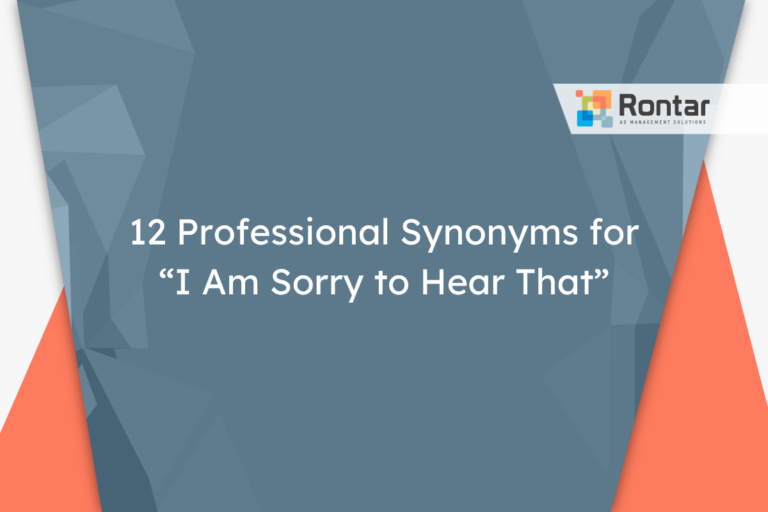10 Ways to Ask if Someone Is Mad at You

When there might have been a misunderstanding or if someone feels upset, it’s important to address the issue directly yet kindly to maintain a positive work environment.
This article provides 10 professional phrases to help you ask if someone is mad at you, along with explanations on when and how to use them effectively. Each example aims to foster open and respectful dialogue, ensuring any potential issues can be resolved.
How to Ask if Someone Is Mad at You
When you’re unsure about someone’s feelings towards you at work, it helps to ask respectfully and clearly. Here are 10 professional phrases you can use in an email:
- Have I done something to upset you?
- I’m sensing you might be upset with me, is there anything I’ve done?
- Is there a reason you’re upset with me?
- Did I do something that bothered you?
- I feel like there might be some tension between us. Have I upset you?
- Have I said something to offend you?
- Is everything alright between us?
- I noticed you seemed a bit off with me. Did I do something wrong?
- Could you let me know if I’ve done something that has upset you?
- Is there anything I’ve done recently that didn’t sit well with you?
1. Have I done something to upset you?
This phrase is straightforward and opens up a dialogue without accusation. It’s polite and shows concern for the other person’s feelings.
This alternative is best for emails between colleagues where you might not be sure of the issue. It’s ideal in a professional setting where you aim to clear the air while maintaining respect. This works well in both less formal and more formal exchanges, depending on your relationship with the recipient.
Example:
Dear Mark,
I’ve noticed a change in our interactions lately, and I wanted to check with you. Have I done something to upset you? I value our working relationship and would like to address any issue you might have.
Best regards,
Tom
2. I’m sensing you might be upset with me, is there anything I’ve done?
This is a tactful way of addressing potential upset, suggesting sensitivity to the other person’s mood or behavior.
It is suitable in situations where you have noticed a slight change but do not want to assume the worst. It is perfect for professional environments where open communication is encouraged but sensitivity towards feelings is also valued. It’s more informal than directly asking if you’ve upset someone, making it great for colleagues you have a friendly rapport with.
Example:
Hi Emma,
I'm sensing you might be upset with me, is there anything I've done? I’m here if you’d like to talk, as I always aim for a positive and cooperative working environment.
Warm regards,
Alice
3. Is there a reason you’re upset with me?
This alternative is direct yet leaves room for explanation, aiming to understand the situation from the other person’s perspective.
When direct communication is needed to address any misunderstanding head-on, this question is more formal. It’s particularly fitting for professional scenarios where you and the recipient have a straightforward communication style. It’s best used when you believe there’s a specific incident that may have led to feelings of upset.
Example:
Hello Brian,
I’ve observed some tension in our recent communications and wanted to address it directly. Is there a reason you’re upset with me? My intention is always to work productively and harmoniously.
Kind regards,
Jennifer
4. Did I do something that bothered you?
This question is polite and shows that you are open to feedback, making it perfect for maintaining a healthy working environment.
This phrase is best when you suspect a specific action might have caused discomfort. It’s highly applicable in professional contexts where you value the other person’s comfort and want to rectify any issues. It is slightly more informal, which makes it suited for colleagues you interact with regularly.
Example:
Hey Alex,
Quick message to catch up. I’ve been reflecting on our last meeting and I’m wondering, Did I do something that bothered you? I’m open to any feedback you have.
Thanks,
Jordan
5. I feel like there might be some tension between us. Have I upset you?
This expression combines acknowledgment of a possible issue with an invitation to discuss it, making it diplomatic and considerate.
This approach is most effective in professional settings where there’s a need for a more nuanced conversation about relationship dynamics. It’s especially suitable when addressing issues with someone in a different department or level within the company hierarchy. It is more formal and is best used in emails or messages where you have a respectful, yet not overly familiar relationship.
Example:
Dear Samantha,
I hope all is well with you. Recently, I feel like there might be some tension between us. Have I upset you? I’m keen on maintaining a positive and effective work environment, so please let me know if there’s anything we should discuss.
Best,
Claire
6. Have I said something to offend you?
This phrase is polite and shows a willingness to correct any potential verbal missteps.
It’s tailored for professional scenarios where misunderstanding may have arisen from communication. This is great for work environments that prioritize respect and clear communication. It’s suitable for emails to peers or superiors where you might need to clarify your intent without sounding too casual.
Example:
Hello Derek,
I hope this note finds you well. I’ve been wondering, have I said something to offend you? If so, I’d very much like the opportunity to clarify and ensure we are on good terms moving forward.
Regards,
Nina
7. Is everything alright between us?
This question is general and non-confrontational, making it versatile for various professional interactions.
This phrase is often used when there isn’t a clear issue, but rather a general feeling of unease. It’s perfect for professional environments where maintaining harmony is essential. It’s a polite approach, fitting for both semi-formal and formal exchanges, and is particularly effective in emails where you wish to offer a gesture of goodwill.
Example:
Dear Lucas,
I wanted to reach out and check in. Is everything alright between us? I’m here if you need to discuss anything or if there is something on your mind.
Best wishes,
Grace
8. I noticed you seemed a bit off with me. Did I do something wrong?
Sensitive and observant, this query gently invites the other person to share if there’s been an issue while showing empathy.
When something feels amiss but not openly discussed, this question is excellent. It’s a polite and informal way to broach potential issues in a professional context. This is well-suited for messages to colleagues you have a friendly relationship with and want to ensure no underlying issues are impacting your work together.
Example:
Hi Zoe,
Hope you’re well. I noticed you seemed a bit off with me lately. Did I do something wrong? I’d appreciate the chance to clear up any miscommunication or misunderstanding.
Take care,
Evan
9. Could you let me know if I’ve done something that has upset you?
This request is explicitly polite and conveys a proactive stance on resolving misunderstandings or conflicts.
This phrase is a powerful tool in professional settings, particularly in emails where clarity and directness are important but softness is also needed. It’s suitable when you are dealing with sensitive subjects where feelings may have been hurt unintentionally. It combines a formal tone with a personal touch, making it effective for communication with both peers and superiors.
Example:
Dear Mara,
I hope this email finds you in good spirits. I value our collaboration and would like to ensure we’re always on the same page. Could you let me know if I’ve done something that has upset you? I’m all ears if you need to discuss anything.
Kind regards,
Liam
10. Is there anything I’ve done recently that didn’t sit well with you?
This phrase is considerate and invites open dialogue, emphasizing care for the other’s feelings and perspectives.
This suggestion is perfect for when you’re seeking feedback on recent actions or decisions in a professional context. It’s exceptional for use with team members or colleagues after a project or meeting where the feedback loop is crucial. It frames the inquiry politely, ensuring the recipient feels comfortable sharing honestly.
Example:
Dear Jeremy,
I trust you’re doing well. As we wrap up our recent project, I wanted to reach out and ask, is there anything I’ve done recently that didn’t sit well with you? Your input is invaluable, and I aim to grow from each experience.
Sincerely,
Sophie
Final Thoughts
Choosing the right words is crucial when you suspect someone at work might be upset with you. By using the phrases listed above, you can approach sensitive topics in a way that is both respectful and professional. It’s important to keep the lines of communication open and address any concerns as soon as they arise to maintain a positive work environment.






